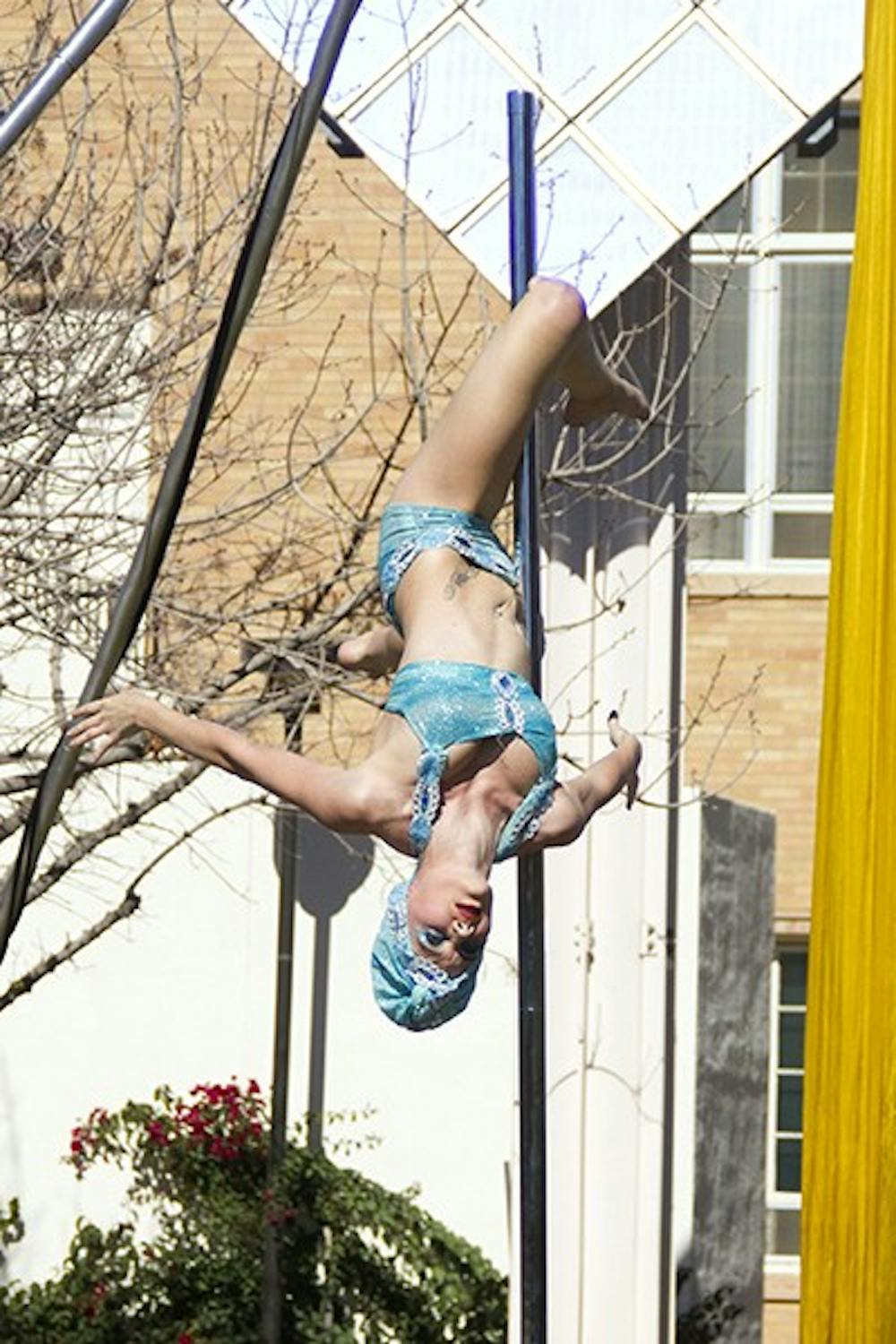 Project Humanities buttons up for grab at the carnival in Hayden Lawn on Feb. 12. Project for Humanities returns to ASU this semester working to encourage humanity and kindness through a series of events this week. (Photo by Ryan Liu)
Project Humanities buttons up for grab at the carnival in Hayden Lawn on Feb. 12. Project for Humanities returns to ASU this semester working to encourage humanity and kindness through a series of events this week. (Photo by Ryan Liu)Stilt walkers, jugglers, dancers and more took to Hayden Lawn in Tempe on Wednesday as part of the spring semester kickoff week for Project Humanities.
Project Humanities was first launched in February 2011 with the purpose of examining humanity through the lens of humanities disciplines and science.
Project Humanities works on seven principles: compassion, empathy, forgiveness, integrity, kindness, respect and self-reflection. Through these, ASU literature professor and Project Humanities director Neal Lester said people can learn to form healthier relationships and operate more efficiently in society and in daily life.
“Every success is a collaboration, no matter if you’re in the business room, a board room, or a hospital room," he said.
Project Humanities also has a student organization, the Project Humanities Students’ Initiative, or asuphs’i, which does events separately from Project Humanities.
Jeska Clark, president of asupsh'i, said the organization meets on the third Thursday of every month at the Tempe campus. On Thursday, the group screened the documentary "Kindness is Contagious."
“This semester we’re having ‘Building Bridges,’” she said. “We’re getting people from different entities to come together and watch a film, so we're having one …we’re getting gamers and retired people together and watch this film and talk about it.”
Religious studies major Johnny Martin, the vice president of the organization, said humanities offers an education that is not only career-oriented.
“You can get an education to become more culturally sensitive, to be more aware of other perspectives, and Project Humanities really fosters that kind of thinking,” he said.
Project Humanities is unique among University initiatives in that it involves all types of people involved with ASU, including not only students and faculty but also alumni, the local community and collaborators from across the country.
 ASU junior meteorology major Charolette Adams performs on Hayden Lawn. The Arizona Circus School performed on the Tempe campus on Feb. 12 with Project Humanities. (Photo by Diana Lustig)
ASU junior meteorology major Charolette Adams performs on Hayden Lawn. The Arizona Circus School performed on the Tempe campus on Feb. 12 with Project Humanities. (Photo by Diana Lustig)The spring 2014 kickoff is composed of 13 events that began Sunday and end Saturday. The events range from open mic poetry slams and film screenings to talks on topics like the n-word and interfaith dialogue.
Project Humanities doesn’t end after one week though, Lester said. It’s a yearlong initiative.
“We can’t possibly do events every day,” he said. “What we try to do is create partnerships with others who are doing these kinds of things. … We’re hoping we create a sort of momentum so people help us create these things.”
The main question that Project Humanities tries to answer every year is ‘Are we losing our Humanity?’
“We’re looking at that in performance, we’re looking at that in research, we’re looking at that in health care, we’re looking at all of those sorts of issues that these values underpin when we’re talking about any sort of success,” Lester said.
Project Humanities received a Key of Excellence award in December from the Phi Beta Kappa society in Washington, D.C., for its “leadership in local and national conversations about the breadth, depth, and value of the humanities across disciplines”. The Phi Beta Kappa society is the oldest and one of the most prestigious honor societies in the U.S.
Reach the reporter at dhignutt@asu.edu or follow him on Twitter @davidhignutt




